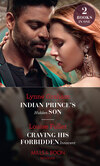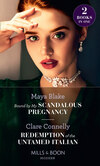Loe raamatut: «The Arrogant Duke»

Mills & Boon is proud to present a fabulous collection of fantastic novels by bestselling, much loved author
ANNE MATHER
Anne has a stellar record of achievement within the
publishing industry, having written over one hundred
and sixty books, with worldwide sales of more than
forty-eight MILLION copies in multiple languages.
This amazing collection of classic stories offers a chance
for readers to recapture the pleasure Anne’s powerful,
passionate writing has given.
We are sure you will love them all!
I’ve always wanted to write—which is not to say I’ve always wanted to be a professional writer. On the contrary, for years I only wrote for my own pleasure and it wasn’t until my husband suggested sending one of my stories to a publisher that we put several publishers’ names into a hat and pulled one out. The rest, as they say, is history. And now, one hundred and sixty-two books later, I’m literally—excuse the pun—staggered by what’s happened.
I had written all through my infant and junior years and on into my teens, the stories changing from children’s adventures to torrid gypsy passions. My mother used to gather these manuscripts up from time to time, when my bedroom became too untidy, and dispose of them! In those days, I used not to finish any of the stories and Caroline, my first published novel, was the first I’d ever completed. I was newly married then and my daughter was just a baby, and it was quite a job juggling my household chores and scribbling away in exercise books every chance I got. Not very professional, as you can imagine, but that’s the way it was.
These days, I have a bit more time to devote to my work, but that first love of writing has never changed. I can’t imagine not having a current book on the typewriter—yes, it’s my husband who transcribes everything on to the computer. He’s my partner in both life and work and I depend on his good sense more than I care to admit.
We have two grown-up children, a son and a daughter, and two almost grown-up grandchildren, Abi and Ben. My e-mail address is mystic-am@msn.com and I’d be happy to hear from any of my wonderful readers.
The Arrogant Duke
Anne Mather
MILLS & BOON
Before you start reading, why not sign up?
Thank you for downloading this Mills & Boon book. If you want to hear about exclusive discounts, special offers and competitions, sign up to our email newsletter today!
Or simply visit
Mills & Boon emails are completely free to receive and you can unsubscribe at any time via the link in any email we send you.
Table of Contents
Cover
About the Author
Title Page
CHAPTER ONE
CHAPTER TWO
CHAPTER THREE
CHAPTER FOUR
CHAPTER FIVE
CHAPTER SIX
CHAPTER SEVEN
CHAPTER EIGHT
CHAPTER NINE
Copyright
CHAPTER ONE
ESCAPE! Juliet savoured the word even as she felt a faint pang of self-recrimination. She ought not to be feeling so happy just because she had managed, for the first time in her life, to get the better of her father. Even now, at the thought of his anger when he discovered what she had done, she shivered, and hoped with urgent intensity that he would have time to cool down before he discovered her whereabouts. There was little doubt in her mind that he would find her; in his thorough, painstaking way he would explore every avenue until some small clue gave him the necessary lead. But at least for a time, a few months perhaps, she would have the chance to do what she wanted to do for a change.
She looked through the window of the island-hopping hydroplane, finding relief from her thoughts in the unbelievably beautiful panorama spread out below her. Since they left Bridgetown that morning the whole tapestry of islands and deep, deep blue sea had enchanted her, more now than ever before, and she thought for the umpteenth time that the advertisement in The Times which she had answered had been made for her. She knew they were nearing Venterra, the dark-skinned steward had already warned her to fasten her safety belt, and she tried to pick out which island it might be. Surely in so many islands her father would never find her without her assistance.
For Juliet, everything now was a novelty. She had never travelled alone before, there had always been the accompaniment of her father’s train of assistants, secretaries and servants, luggage and sporting equipment to attend to. It had been exciting to carry her own bag, to hire her own porter, to stay at a small hotel instead of a luxury club, and to choose her own meal.
Mandy, of course, would have been horrified to think of her ewe-lamb staying alone in even so British an island as Barbados, and it was as well that she believed, as indeed did her father, that she was staying with friends for a couple of days. Mandy, or Miss Jane Manders, to give her her correct name, was the nearest person to a mother that Juliet had ever known. Her own mother had died when she was born, much to her father’s anguish, and Juliet supposed that maybe that was why he treated her so possessively, placing her in her mother’s shoes. Mandy had been thirty then, just recovering from the grief of her own mother’s death, and she had taken care of Juliet at once, lavishing all the love she had on the child. Sometimes, Juliet had wondered why Mandy had never got married, and then again she had speculated as to whether her nurse and companion cherished some vain feelings towards her father. But Robert Lindsay certainly gave her no encouragement, and the arrangement which had begun as a temporary thing had lengthened into more than twenty years, and now Mandy could only be regarded as one of the family. It was Mandy who Juliet disliked deceiving most, but as Miss Manders had, over the years, taken over the reins as housekeeper in the large rambling house in Hampstead which had been the home of the Lindsay family for many many years, Juliet knew that her position in the household would not be in jeopardy because she had left.
Thrusting back these thoughts, she allowed her mind to dwell on the immediate future and recalled with some amusement her interview with a firm of solicitors in London. The advertisement had called for a young woman, of good family, to act as companion to a girl of sixteen, recently orphaned, with some degree of disability, who was at present living with her uncle in Venterra, an island not many miles distant from St. Lucia in the West Indies.
Juliet had thought the advertisement suited her lack of capabilities perfectly. ‘Oh, she had many attributes, she supposed; she was well read, could arrange flowers decoratively, spoke several languages, was used to acting as her father’s hostess on occasions of importance, and was well able to deal with the sometimes amorous advances of young men her father had chosen as escorts for her.
But basically, she had had no training to follow a career. Her father had never wanted her to become an intellectual, and so her eager mind had had to content itself with learning from books, and the core of dissatisfaction with her empty way of life had been born.
She might never have been courageous enough to do something about it, however, had not her father decided that it was high time she was thinking of getting married. In his usual overbearing way he had produced three young men for her to choose from, but none of them were the kind of man Juliet wanted to marry. She was looking for no knight in shining armour, no gallant paramour to live in a rosy world of romance for the rest of her days. But she did want a man, not some weak-chinned facsimile, who was quite content to allow her father to provide him with every material need in return for marrying his daughter.
She felt an angry sense of injustice, at the remembrance of it all, and then calmed down as she realized she had done the only thing she could, in the circumstances.
The interview had been amusing, though. She had had to remember that her name was now Rosemary Summers and not Juliet Lindsay, and it had been difficult assuming her new identity for the first time. She felt grateful to Rosemary too. She and Rosemary Summers had attended the same boarding school, although Rosemary’s parents were both doctors, and Rosemary had followed in their footsteps and was at present a medical student. She and Juliet had always been close friends, even though Juliet’s father had attempted to discourage that friendship. He had not considered the Summers suitable associates for his daughter, but in this Juliet had been adamant and so her friendship with Rosemary had continued. They met often, and shared their experiences, Juliet envying the other girl’s freedom and her chance to carve a career for herself.
When Robert Lindsay’s campaign turned to the subject of Juliet’s marriage, Juliet poured out all her troubles to Rosemary. Rosemary was sympathetic, listening with her calm, intelligent mind, weighing up the situation, as she would weigh up a patient’s complaints. Then she had said:
‘If I were you, I would get a job, anything, just so long as I had some independence.’
Juliet sighed. ‘That’s all very well for you to say, Rosemary, but he wouldn’t let me do that! Heavens, he’d very likely buy up whoever was employing me, and then give me the sack!’
Rosemary smiled. ‘Oh, Juliet,’ she said, shaking her head, ‘there must be something you can do. Somewhere you could go, where he has no influence!’
‘Not in this country,’ remarked Juliet gloomily.
‘Then out of it,’ said Rosemary reasonably.
‘But how?’
‘I don’t know.’ Rosemary had lit a cigarette before replying, studying its tip with concentration. ‘There are always heaps of jobs available for governesses and nannies which entail travel.’
‘But I couldn’t be either of them,’ exclaimed Juliet. ‘I’ve had no training for a job like that!’
Rosemary had had to agree, so the problem had remained unsolved until Juliet read the advertisement for this job which had appeared in The Times. She had rung Rosemary and told her, and over a prolonged lunch break they had discussed the pros and cons.
‘You must realize that there’ll be heaps of applicants for a position like this,’ said Rosemary, dousing some of Juliet’s enthusiasm.
‘Even so, it is a long way away,’ Juliet had answered. ‘Lots of girls won’t want to work so far away from home.’
‘Maybe,’ said Rosemary doubtfully. ‘But what about your father?’
‘He wouldn’t know anything about it until I’d gone,’ said Juliet, with decision. ‘If I told him he’d only try to stop me.’
‘And don’t you think he will anyway?’ exclaimed Rosemary. ‘It will be the easiest thing in the world for him to trace you there.’
‘Oh, yes, I suppose you’re right. My passport and booking and everything!’ Juliet heaved a sigh.
‘Of course.’ Rosemary studied her sympathetically. ‘Oh, Juliet, I don’t know what to say.’
Juliet lifted her shoulders, lighting herself a cigarette. ‘What is there to say?’ she said moodily. Then, as though mesmerized, an idea caused her to allow the match to burn her fingers. ‘Ouch!’ she gasped, rubbing the injured finger. ‘Rosemary, I have had an idea! The perfect solution, in fact. If you’re agreeable!’
Rosemary lay back in her seat. ‘Go on. What is it?’
‘Well,’ Juliet ran her tongue over her lips excitedly, ‘how about my using your passport?’
Rosemary sat up in astonishment. ‘My passport!’ she echoed.
Juliet nodded vigorously. ‘Yes. Oh yes, Rosemary. It’s the perfect solution! You know how alike people have always said we are, same hair, same height, same colouring! Those passport photographs are notoriously terrible. No one studies them in detail.’
‘They do,’ exclaimed Rosemary indignantly. ‘But maybe so far as the photo is concerned you might get away with it. It isn’t a very good likeness of me.’
‘You see!’ Juliet’s eyes were alight. ‘Your hair is the same colour as mine, and all I’d have to do is wind mine up in that pleat you wear. We’re both quite tall and slim, and our colouring is practically the same.
‘Your tan is deeper,’ returned Rosemary dryly, ‘but then I haven’t just spent three weeks in the South of France.’
Juliet sighed, and gave a wry smile. ‘You may not believe this, Rosemary, but I’d rather be you than me any day of the week!’
Rosemary looked contrite. ‘I know, I know,’ she said, feeling sorry for what she had hinted. It was true, Juliet did not consider herself lucky. Compared to Rosemary, Juliet’s life was empty. ‘It would mean you adopting my identity,’ she continued thoughtfully.
Juliet’s young face darkened. ‘Oh, yes, it would,’ she said slowly. ‘Damn!’
‘Well, that’s not insuperable,’ replied Rosemary consideringly. ‘After all, no one knows your name there, or mine either, for that matter. You could be Rosemary Summers; it’s not such an uncommon name.’
Juliet looked at her with wide eyes. ‘I really believe you’re considering it,’ she exclaimed. ‘Oh, Rosemary, would you? Would you really?’
Rosemary gave a grimace. ‘Well, I don’t see how I can refuse,’ she replied dryly. ‘I’m very fond of you, Juliet, and although we’re the same age, I always feel years older than you. I don’t want to see you forced mentally, if not exactly physically, into an unhappy marriage. There are too many of them around already, and I know that men like Roger Latimer and Stephen Longdon and that awful Jeremy McVane would bore you stiff!’
Juliet clasped her hands together. ‘Do you really think I might get away with it?’ she exclaimed.
Rosemary shrugged. ‘Well, you’ve got to get the job first,’ she replied practically. ‘And quite honestly, with your appearance I doubt whether you’d even be considered!’
Juliet frowned. ‘Why?’
‘Well, you don’t look as though you need a job, for a start, and secondly they’re bound to want somebody plain, and ordinary, and not too decorative. After all, the West Indies is quite a place. They won’t want their suitable applicant finding herself a husband during the first few weeks she’s there.’
Juliet looked thoughtful now. ‘Yes, you’re right, as usual,’ she murmured. ‘I’ll just have to make myself look very plain, and very ordinary, and if I put my hair up as you wear yours that should add a few years!’
‘Gee, thanks!’ exclaimed Rosemary dryly, and they both collapsed in giggles.
Remembering all this now, Juliet felt a smile curve her lips. Rosemary had been wonderful, particularly as she was aware, just as acutely as Juliet, that she would be the first person Robert Lindsay would contact when he discovered Juliet had disappeared. She would have to be very astute not to be caught out by a man as determined as Robert Lindsay.
The interview had been rather different from Juliet’s imaginings. When she arrived at the offices of Benyon, Forster, Benyon and Benyon, she found only one other applicant waiting for interview. She was a girl of around her own age, who confided to Juliet that the job did not appear to be the sinecure it had first appeared to be.
‘This girl we’re supposed to be companion to – did you know she was confined to a wheelchair?’
Juliet smoothed the skirt of her dark grey suit over her knees. It seemed far too long after the short styles she was used to wearing, but at least it gave her an added sense of confidence.
‘Well,’ she replied carefully, ‘the advertisement did say that she had some degree of disability.’
‘Some degree!’ the other girl sniffed. ‘I don’t call an invalid in a wheelchair only partially disabled! Heavens, I thought maybe she had only one arm or something like that!’
Juliet felt a sense of distaste at the girl’s words. ‘I don’t see that it matters,’ she said quietly. ‘Surely a girl so young, confined as she is, deserves companionship.’
‘It’s a nurse they want, not a companion,’ retorted the girl shortly. Then she stood up. ‘Oh, anyway, I don’t think I’ll stay. I don’t want that kind of a job. It was the locality that appealed to me. Tell them I changed my mind, will you?’
Juliet’s eyes widened. ‘All right. But are you sure?’
‘Of course I’m sure. G’bye. Hope you get it, if you want it!’
After the girl had gone Juliet felt uncomfortable. What would the interviewers think when she had to tell them that one of their applicants had changed her mind? She hoped they wouldn’t think she had said anything to deter her.
But when a man who she later discovered to be Mr. Forster came to ask Miss Laurence, as the girl had been called, to come in, and Juliet explained what had happened, he merely shook his head sadly, and said:
‘I’m afraid we worded the advertisement wrongly, Miss Summers – it is Miss Summers, isn’t it?’ and at Juliet’s nod: ‘All the applicants appear to have believed Miss de Castro had some mild disablement that would not inconvenience themselves too greatly. I gather Miss Laurence advised you of the facts of the matter.’
Juliet rose to her feet. ‘Yes, she did.’
He nodded. ‘I see. It was very kind of you to wait and see me.’ He sighed. ‘We must advertise again.’
Juliet drew her brows together. ‘Do I take it then that I’m unsuitable?’
Mr. Forster stared at her. ‘You mean — you’re prepared to take the job?’
Juliet bit her lip. ‘Well, yes, if you’re prepared to interview me.’
Mr. Forster rubbed his hands together. ‘Oh, indeed, yes, indeed, Miss Summers. Come in – come in! I’m sure we can work something out.’
And so they did.
Juliet felt the plane bank slightly, and looked down, feeling the bubble of excitement rising inside her again. What had Mr. Forster said? That the girl, Teresa, had been injured in the same car crash which had killed both her parents; that she was paralysed from the waist down; that the accident had happened six months ago, and since she came out of hospital she had been living on Venterra with her uncle, Felipe de Castro.
They were losing height rapidly now, flying low over the island, giving Juliet a marvellous view of a thickly wooded central area, high peaks emerging above the tops of the trees; a coastline of bays and coves, with the inevitable line of a reef some distance out from the shore; villages nestling at the foot of the hills, fishing boats nudging stone jetties; pastel-painted houses, and the tiles of more sophisticated dwellings, standing in their own grounds. The brilliance of the sun accentuated the greenness of the foliage and the exotic colour of the flowers and trees. She breathed a faint sigh, half relief, half apprehension, for now she had to face her future employer, and her future charge.
She was the only passenger on the hydroplane, apart from Louis, the steward, who had welcomed her aboard. She had gathered from his comments that the plane belonged to Senhor de Castro, her future employer, and was used because there was nowhere smooth and flat enough to support an airstrip. Mr. Forster had told her that Senhor de Castro was a Portuguese gentleman, who had sugar estates on the island, and that apart from herself his household accommodated several servants, including an American nurse for Teresa. Altogether it sounded quite delightful, and Juliet, enchanted with her own freedom, was revelling in it all.
The hydroplane came down on the smooth surface of a bay, which was edged by a small community of cottages, the boats by the jetty rocking as the plane caused the water to swell considerably. Juliet loosened her seat belt, looked back at Louis, and said:
‘We’ve arrived?’
Louis nodded his head. ‘Sim, senhorita,’ he said. ‘This is Venterra. You like?’
Juliet smiled. ‘Yes, I like. What do we do now?’
Louis stood up and came to her side. ‘See, Pedro has already started for the plane with his boat, eh!’
Juliet looked through the window as he pointed, and saw the small rowing boat approaching them. ‘Oh, yes. Thank you, Louis.’ Then: ‘How will I get to the de Castro home?’
Louis unstrapped her suitcases from their position in the rear, and then said: ‘Do not worry, senhorita. A car will have been sent for you.’
‘I see.’ Juliet wished she could dispel the apprehension which was rapidly overtaking all other emotions. ‘Is it far to the house?’
‘The quinta, senhorita! No, it is not far. Miguel will take you.’
Juliet decided she had asked enough questions. It would not do to sound too curious about her employers. She wondered if Senhor de Castro was married. It seemed likely, and yet Mr. Forster had not mentioned it. He must be quite old. Mr. Forster had said that Teresa was the daughter of his younger brother, and as Teresa was sixteen it did not take a great deal of mathematical skill to work out that this man must be in his forties at the very least. She hoped, feeling a twinge of nervousness assail her, that he was not the kind of man to make passes at his employees. Such an idea had not occurred to her before, and yet now it loomed large and rather disturbing.
The small craft touched the hydroplane, and the pilot threw open the door so that Juliet could emerge and climb into the boat. She had decided to wear a slack suit for the journey, and now she was glad she had. Getting in and out of small rowing boats was not the easiest thing to do while endeavouring to hold down a skirt.
The heat here was tempered by a faint breeze, and the boat rocked gently. The scents of the island, a tang of salt and sea and the perfumes of the flowers, mingled with the sweet smell of the cane, and Juliet took a deep breath, shedding a little of her apprehension.
Pedro, the boatman, was dark-skinned like Louis, but with more European features. He grinned cheerfully at the pilot and Louis, and gave Juliet a speculative glance before taking the cases and stowing them in the bottom of the small boat. After a brief conversation with his compatriots, he again took the oars and rowed rhythmically back to the stone jetty. Juliet was aware that their progress had attracted quite a deal of attention from women and children on the jetty, and she tried to interest herself in her surroundings to exclude her embarrassment. There was certainly plenty to see, the attractively painted cottages jostling each other, the fishing vessels with dark nets stretched out to dry, the palms that encroached almost to the water’s edge in places, and most incongruous of all a low-slung cream convertible which was parked on the road which wound between the narrow houses.
Pedro nodded to the automobile. ‘Miguel,’ he said, by way of an explanation. He pointed to himself. ‘Er – Pedro’s – brother.’
‘Oh yes,’ Juliet nodded politely, recalling that Mr. Forster had not said she needed a foreign language here. It would prove awkward if they all spoke mainly Portuguese. Although she knew Spanish, Portuguese was not one of her languages.
They reached the jetty, Pedro threw out the painter, and another man who was very much like Pedro caught it and tied the boat securely to the capstan.
He helped Juliet to climb on to the stone pier, and grinned down at his brother. His gaze turned back to Juliet, his eyes indicative of the appreciation he felt. ‘You are Senhorita Summers?’
‘Yes,’ Juliet nodded again. ‘Did Senhor de Castro send you to meet me?’
Miguel’s eyes narrowed. ‘Er – sim, senhorita. I suppose o Duque did send me!’
‘O Duque!’ Juliet translated rapidly. The Duke! What duke? ‘Who – who might the Duque be?’ she asked slowly.
‘O Duque Felipe Ricardo de Castro!’ replied Miguel calmly. ‘The man who is to be your employer!’
‘My employer – is – is a duke? I don’t believe it!’
Juliet was astounded.
‘But I understood from – from the solicitor in London—’ She halted again. She was asking too many questions once more. After all, there was a possibility that Mr. Forster had deliberately refrained from telling her that her employer was to be a duke. After the problems he had had hiring someone, maybe he had thought that such a revelation would jeopardize his chances of obtaining a satisfactory applicant.
Miguel was studying her with some amusement in his dark eyes, and Juliet gathered her scattered senses. After all, what of it? She had met dukes before, and they were only people like anyone else. What was there to alarm her?
She compressed her lips ‘Is this the car?’ she asked, amazed at her own composure.
Miguel inclined his head. ‘Sim, senhorita. Ah, Pedro, have you got all the luggage? Good. Come, senhorita.’
She followed Miguel across to the car, ignoring the speculative glances of the group of islanders who watched them with interested dark eyes. Really, thought Juliet, with something like annoyance at her own disturbed frame of mind, what was she getting so het up about? Just because she had discovered that her employer was a Portuguese duke. It was ridiculous!
But still she couldn’t banish the thought that a duke was slightly different from a mere senhor, and in her precarious position the fewer complications there were the better.
Miguel stowed the cases, had a good-natured chatter with Pedro, then slid into the front seat of the automobile, and set it in motion. They drove along the quayside, past the now waving children, whose mothers gave wide smiles, and up a curving track which led along the coastline. The steep gradient brought them to a higher road which wound round the heavily foliaged hillside. Here Juliet had a magnificent view of the whole coast, its bays and headlands giving it a wild and untamed beauty. The coves were white with coral sand, rocks rearing their ugly heads above the creaming surf. Inland was the exotic beauty of plant life, bushes of oleander and hibiscus providing brilliant splashes of colour, while some rarer varieties which Juliet could not name added their own pink and gold charm to the view. They were sweeping down again now, into a valley whose walls were networked by fast-flowing tumbling streams, at whose brink tiny blue flowers grew. A river ran through the valley floor and here were fields of waving sugar cane, and the sweet smell was intoxicating.
Unable to resist, she leaned forward, and said: ‘Does this plantation belong to – to the Duke?’
Miguel glanced round once, and then returned his attention to the road. ‘Senhorita, this whole island belongs to the Duque.’
‘Oh!’ Juliet sat back in her seat.
Miguel, encouraged by her question, remarked: ‘Do you think you will like it here, senhorita?’
Juliet bit on her bottom lip. ‘I – I’m sure I shall,’ she said awkwardly. ‘Is – is it far now?’
‘Not far,’ Miguel answered. And then: ‘You have come to be a friend for the young senhorita, is that right?’
Juliet hesitated. She had no wish to say too much, but his question seemed innocent enough. ‘That’s right,’ she said now, nodding.
‘Senhorita Teresa,’ murmured Miguel, almost as though he was speaking to himself. ‘Yes, it will not be easy.’ And with this cryptic comment he said no more.
They left the valley through a narrow pass in the hillside, towering bastions of rock on either side of the narrow road. They emerged on to a plateau, which fell away steeply at the far side to the shoreline at the other side of the island. The sun was growing higher and the heat seemed intense even in the open vehicle. Juliet fumbled in her bag, and slid dark glasses on to her nose, wishing the journey was over.
Now they were descending again, a winding road along terraces cultivated with coffee beans. Nearer sea-level, they branched on to a side road which brought them to tall gates, standing wide, and a drive which led up to the home of the Duque de Castro.
Juliet caught her breath in a gasp when she saw the quinta for the first time. Built of mellowed grey brick, it stood on three sides of a central courtyard, but Miguel brought the car round to the front of the building and halted on a gravelled forecourt. Surrounded by trees which provided a backcloth for its almost medieval beauty, with the sun turning its windows into golden tongues of flame, the quinta was imposing and impressive, and wholly unlike anything Juliet had even vaguely imagined. Without waiting for Miguel to assist her, she slid out of the car, and stood looking up at the arched portals of its entrance, emblazoned by the crest of the de Castro family. Through an arched hallway, the central courtyard could be seen where a fountain played in its centre, providing a constant and cooling sound of running water.
Miguel smiled at her expression, and said: ‘Come. Consuelo will show you to your room. You will have time to relax before meeting the Duque and his niece.’
Juliet looked down at her dark blue slack suit, and felt relieved. At least she was to have the opportunity of changing before meeting so autocratic a personage as the Duque de Castro.
They entered through heavy doors which stood wide to the morning air, into a hall, marble tiled and panelled with rosewood. A white-painted wrought iron rail supported a wide, shallow staircase, which curved gently up to a long gallery. There were flowers everywhere, on pedestal stands, or simply in huge urns, artistically arranged. There was the smell of beeswax mingled with the perfumes of the flowers, and Juliet thought she would never remember Venterra without recalling the fragrance.
She was looking about her with interest, as Miguel brought in her suitcases, when a dark-skinned woman, with tightly curled hair, approached from along a passage to the left of the hall. Dressed all in black, apart from a white apron, she looked warm and friendly, and Juliet responded to her smile. Was this Consuelo whom Miguel had spoken of?






























